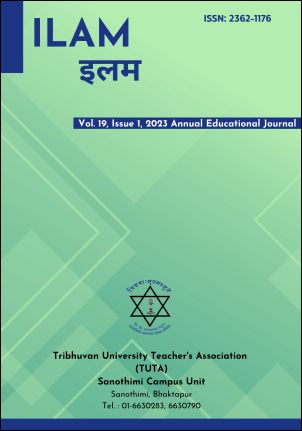Impact of Globalization in the School Education Policy of Nepal
DOI:
https://doi.org/10.3126/ilam.v19i1.58601Keywords:
Globalization, Education Policy, School Education, Theory of GlobalizationAbstract
The impact of globalization on the education policy of Nepal started six decades ago, but formally, it can be realized after the restoration of democracy. In this context, this study focuses on analyzing how the principles of globalization influence the school education policy of Nepal. It is drawing upon theories of globalization in education like the theory of trees and the theory of birdcages. The purposive sampling technique was used to select the sample population, and information was also collected through open-ended interviews with real stakeholders. This study argues that most educational policies, after the restoration of democracy, have seemed directly influenced by the principles of globalization regarding school financing, curriculum, and school governance and management. Nepal has remaining dichotomous accounts of globalization through education policy, especially how we tailor between global value and local value. To improve the education system with the assumption of globalization in education, it is required to conduct a practical study about the conditions under which we adapt the norms and culture of globalization into the education systems of developing countries like Nepal.




